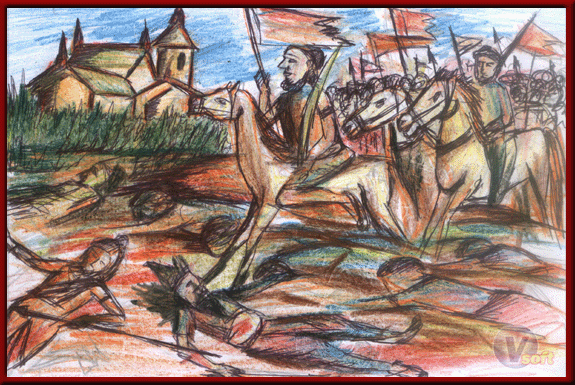186. The Bodhisatta And The King Dhananjaya

Once upon a time in the city of Indapattana, in kingdom of the Kurus, a king was reigning named Dhananjaya, of the race of Yudhitthila. The Bodhisatta was born in the house of his family priest, when he grew up, he learned all the arts at Takkasila, he returned to Indapattana, and at his father’s death he became family priest to the king and his counselor in things temporal and spiritual. His name was called Vidhurapandita.
King Dhananjaya disregarded his old soldiers and showed favour to new-comers. He went to fight in a disturbed frontier province: but neither his old warriors nor the new-comers would fight, each thinking the other party would see to the matter. The king was defeated. On his return to Indapattana he reflected that his defeat was due to the favour he had shown to new-comers. One day he thought,” Am I the only king who has ever been defeated through favour shown to new-comers, or have others had the same fate before? I will ask Vidhurapandita.” So he put the question to Vishurapanduta when he came to the king’s levee.
The Master, declaring the reason of his question, spoke:–
The righteous king Yudhitthila once asked Vidhura wise,
“Brahmin, dost know in whose lone heart much bitter sorrow lies?”
Hearing him, the Bodhisatta said, “Great king, your sorrow is but a trifling sorrow. Of old, a Brahmin goatherd, named Dhunakari, took a great flock of goats, and making a pen in the forest kept them there; he had a smoking fire and lived on milk and the like, tending his goats. Seeing some deer of golden hue who had come, he felt a love for them, and disregarding his goats he paid the honour due to them to the deer. In the autumn the deer moved away to the Himalayas; his goats were dead and the deer gone from his sight; so ot of sorrow he died. He paid honour to new-comers and perished, having sorrow and misery a hundred, a thousand times more than you.”
Such was the tale told by the Great Being to console the king. The king was comforted and pleased, and gave him much wealth. From that time onward he showed favour to his own people, and doing deeds of charity and virtue, he became destined for heaven.


Leave a Reply